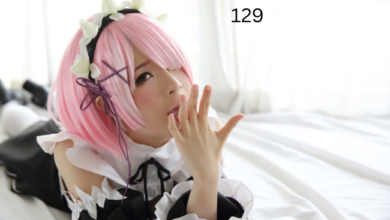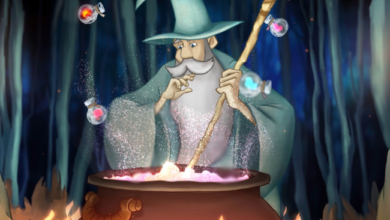Dämon: Unraveling the Mysteries of Demonic Entities
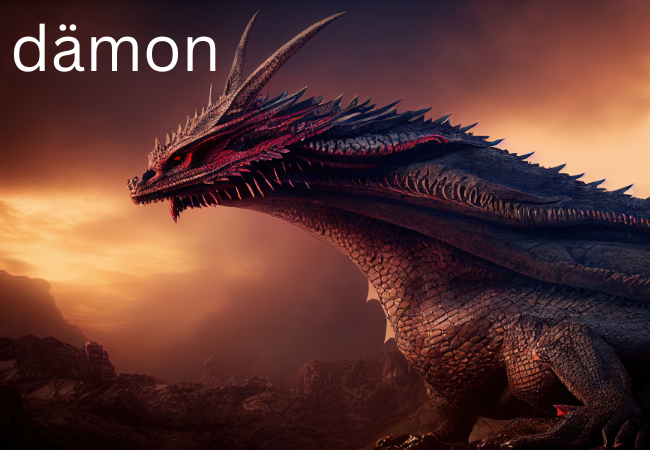
When you hear the word “,” what comes to mind? Is it a chilling presence lurking in the shadows or perhaps a powerful being with otherworldly influence? The concept of the dämon has intrigued humanity for centuries, weaving its way through ancient lore, religious texts, and modern pop culture. But what exactly is a dämon, and why does it captivate our imagination so profoundly?
Origins and Etymology
Etymological Roots
The term “dämon” originates from the Greek word “,” which referred to a spirit or divine power. Unlike the modern interpretation, ancient Greeks didn’t necessarily view as malevolent. They could be benign or even protective spirits.
Cultural Significance in Ancient Civilizations
In ancient Greece, daimons were seen as intermediaries between gods and humans. They played vital roles in guiding and influencing human actions, often seen as personal guardians or tutelary deities. This view was echoed in other cultures, with similar concepts appearing in ancient Rome, Egypt, and Mesopotamia.
Various Religions
Dämon in Christianity
In Christianity, the perception of dämonen shifted dramatically. became synonymous with fallen angels and demonic entities opposing God. This interpretation was heavily influenced by the story of Lucifer’s fall from grace.
Dämon in Islam
Islamic tradition also acknowledges the existence of jinn, supernatural beings created from smokeless fire. While not all jinn are considered evil, some are believed to cause harm and mischief, aligning with the concept of .
Dämon in Judaism
Judaism has its share of demonic entities, such as and the dybbuk. These beings are often seen as malicious and capable of possessing humans, requiring rituals to exorcise them.
Dämon in Eastern Religions
Eastern religions like Hinduism and Buddhism feature various demonic figures, but these beings often have complex roles. They can be malevolent or benevolent, challenging humans to overcome their inner flaws.
Mythological Dämon vs. Popular Culture
Ancient Myths and Legends
Mythological dämonen have been depicted in countless stories, from the Greek Eros, a spirit of love, to the fearsome Mesopotamian entity Pazuzu. These stories reflect the multifaceted nature of in ancient belief systems.
Dämon in Modern Literature and Movies
Today, dämonen are staples of horror fiction and cinema. From the terrifying Pazuzu in “The Exorcist” to the more sympathetic portrayal of demons in shows like “Lucifer,” modern media has reshaped our understanding and expectations of these entities.
Types
Classification of Dämonen
can be classified based on their origins, roles, and attributes. Some are ancient deities rebranded as demons, while others are entirely new creations of human imagination.
Specific Examples from Different Cultures
- Greek Mythology: Daimon Eros, guiding love and passion.
- Mesopotamian Mythology: Pazuzu, a wind demon known for bringing disease.
- Japanese Folklore: Oni, ogre-like demons causing chaos and destruction.
Symbolism and Iconography
Common Symbols Associated with Dämonen
Dämonen are often associated with certain symbols, such as pentagrams, goats, and horns. These symbols have evolved over time, but their connection to remains strong.
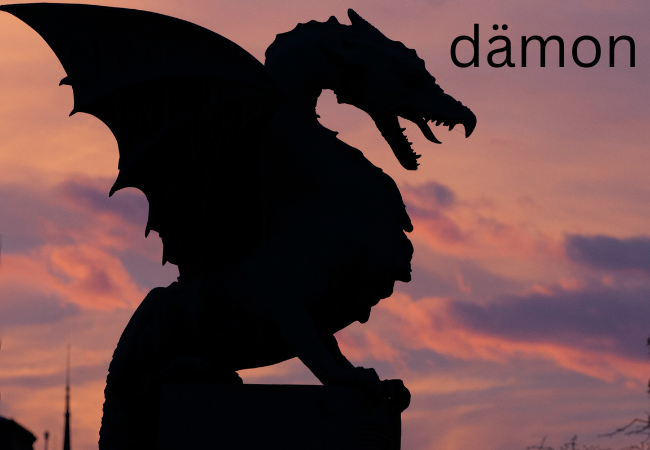
Artistic Representations Through History
From medieval manuscripts to Renaissance paintings, dämonen have been depicted in various art forms. These representations reflect contemporary beliefs and fears, evolving with cultural shifts.
Dämonen in Folklore and Superstition
Folklore Tales Involving Dämonen
Many cultures have rich folklore featuring . For example, the Slavic demon Baba is a fearsome witch, while the Irish banshee heralds death with her wail.
Superstitions and Practices to Ward Off Dämonen
Various superstitions have arisen to protect against dämonen, such as using salt, iron, or specific prayers and rituals. These practices highlight the deep-seated fear and respect these entities command.
The Concept of Dämon in Psychology
Dämon as Metaphor for Inner Demons
In psychology, often symbolize internal struggles and personal battles. The term “fighting your demons” refers to confronting and overcoming these inner conflicts.
Psychological Interpretations and Uses
Psychologists might use the concept of dämonen to help patients externalize their issues, making them easier to address and overcome. This metaphorical use underscores the versatility of the concept.
Dämonen in Literature
Notable Works Featuring Dämonen
Literature is replete with dämonen, from Dante’s “Inferno” to Milton’s “Paradise Lost.” These works explore the nature of good and evil, using as powerful narrative tools.
Influence on Gothic and Horror Genres
The presence of dämonen has significantly influenced the Gothic and horror genres. Characters like Dracula and stories like “Faust” illustrate the enduring appeal of demonic themes.
Dämonen in Popular Media
Movies and TV Shows Featuring Dämonen
Movies like “The Exorcist” and TV shows like “Supernatural” have brought into mainstream entertainment, often focusing on their terrifying aspects.
Dämonen in Video Games and Comics
Video games and comics also feature dämonen, with titles like “Diablo” and “” exploring their dark and complex natures.
Dämonen in Modern Spiritual Practices
Role in Contemporary Witchcraft and Paganism
In modern witchcraft and paganism, dämonen are sometimes invoked in rituals for protection or guidance. Their roles can vary widely, reflecting the diversity of contemporary spiritual practices.
Dämonen in Modern Esoteric Traditions
Esoteric traditions like Thelema and certain occult practices view as powerful beings that can be summoned and controlled for various purposes.
The Influence of Dämonen on Modern Language
Words and Phrases Derived from
Words like “demonic” and “pandemonium” have roots in the concept of dämonen. These terms reflect the pervasive influence of dämonen on language and culture.
Impact on Idioms and Expressions
Expressions like “facing your demons” highlight how deeply the concept of dämonen is embedded in our language, symbolizing personal struggles and challenges.
Dämonen in Art and Music
Famous Paintings and Sculptures
Artworks like Goya’s “The Witches’ Sabbath” and Rodin’s “The Gates of Hell” depict , capturing their terrifying and fascinating qualities.
Dämonen as Inspiration for Musicians
Musicians have also drawn inspiration from dämonen, with bands like Black Sabbath and Iron Maiden incorporating demonic themes into their music.
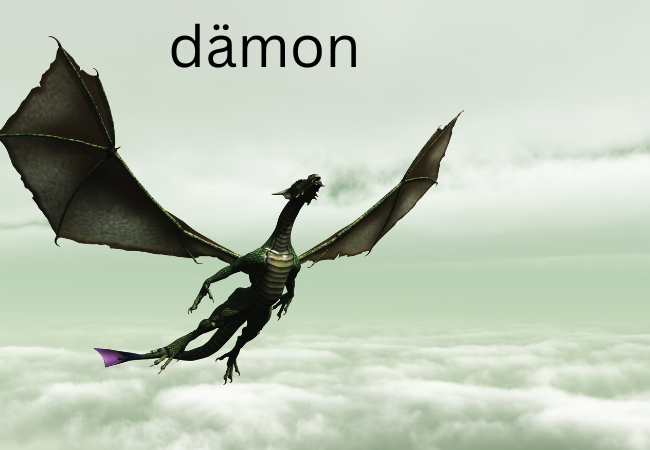
Controversies and Misconceptions
Common Misunderstandings About Dämonen
Misconceptions about abound, often fueled by sensational media portrayals. It’s important to distinguish between myth and reality when discussing these entities.
Media and Public Perception
The media often sensationalizes dämonen, focusing on their fearsome aspects while neglecting their more nuanced roles in mythology and religion.
Conclusion
Dämonen, with their rich history and multifaceted nature, continue to captivate and intrigue. From ancient myths to modern media, these entities reflect our deepest fears and most profound questions about the nature of good and evil. Understanding in their various contexts can offer insights into human psychology, culture, and spirituality.
FAQs
What is the origin of the word “dämon”?
The word “dämon” comes from the Greek “,” originally referring to a spirit or divine power rather than an evil entity.
How do different cultures perceive dämonen?
Perceptions vary widely; in some cultures, are seen as protective spirits, while in others, they are malevolent beings causing harm.
Are dämonen always considered evil?
Not necessarily. While many traditions view as evil, others see them as neutral or even protective forces.
How are dämonen depicted in modern entertainment?
Modern entertainment often portrays as terrifying antagonists, though some media offer more sympathetic or complex portrayals.
Can dämonen be seen as positive figures?
In some traditions and modern interpretations, can represent inner strength, protection, or challenges to overcome for personal growth.
